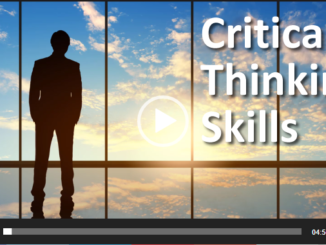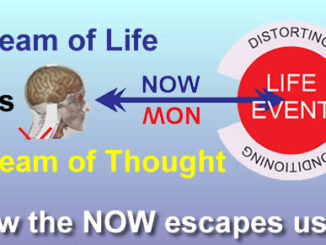
“If you begin to understand what you are without trying to change it, then what you are undergoes a transformation.”
Jiddhu Krishnamurti
In putting this post together, I tried unsuccessfully to find the source/context of this quote. While the quote is readily available from a multitude of websites, without the proper context or explanation for most it becomes just another throw-away slogan, which I think is a tragic loss of its essence. If you know what the source of the quote was, in what talk it was delivered, please let us know via the comments below. Krishnamurti, like A Course in Miracles, speaks in abstract and cryptic language that is virtually undecipherable to those of us not on that level. And unlike the Course, which has the excellent explanatory books by Ken Wapnick to help explain those cryptic passages, less of that same consistent caliber appears to exist for Krishnamurti’s works. So we are left, as he had intended, for us to ‘experiment’ and decipher it for ourselves.
This is my deciphering of the quote. When we observe ourselves we almost instantly escape from reality by (virtually instantly, without our recognition) liking or disliking, loving or loathing the condition or feature we attribute to ourselves. This judgement, whether for or against, is based on past memory. I happens so fast it appears automatic and inevitable. The world heartily encourages this analysis and reaction, which forms the basis of ‘good judgement’ in this world. But is it?
I think what K was saying is that this escape into ‘thought’ based on past conditioning is what prevents us from seeing truly in the present moment. This simple and elemental process, that we have indoctrinated ourselves with since birth, is so ‘natural’ that we never think to question it. In fact, questioning it is evidence of mental illness.
What if, instead of putting the emphasis on the ‘good’ or the ‘bad’ of what we are seeing as evaluate against others or the world, we instead put our entire focus on this process itself – observing our minds escape into a process of positive or negative? Let’s say you are at a meeting with a number of others, and the typical games are happening. Instead of being drawn into the games, what if you shifted the focus to watch exactly what your mind is doing in reaction to observing the games?
Krishnamurti put a great emphasis on observing and understanding ourselves, our thoughts and emotions… to me he appeared to be a scientist of the mind. I believe he meant the ability to observe without ‘naming’ or identification with the observed was a precursor to understanding. Thoughts are images, and a ‘choiceless awareness’ of events in theory prevents those image thoughts from occurring. In A Course in Miracles a fundamental concept is that when we step aside, the Holy Spirit’s thought system becomes apparent. I suspect K and the course are speaking of the same things in different words – the ending of thought, which clouds our true vision, and the dawning of a new form of intelligence. Even Carlos Castaneda, although his fictional books were at level far below, speaks of a similar ‘stopping of the world’.
The trick for us mortals is that the seeking of the ‘stopping of the world’ in whatever form prevents it from occurring, as only the ego seeks, and thus acts as a perfect trojan horse to prevent us from finding what is beyond the ego. The way pointed out by both K and the Course is to simply watch our thoughts in practicing ‘choiceless awareness’. It sounds simple, but just try it. Your worldly mind was not designed for this. It was designed to deal with complex problems and to overlook the obvious. This process does not depend on education or technique, but upon diligent self-observation, attainable by all, but at a level far beyond any mental discipline most of us possess. It is not a matter of climbing a mountain (our ego loves mountain climbing), but of lifting our foot a thousand times a day over a pebble. The requirements are not intellectual in nature, but personal willingness and courage, because to experiment with our thoughts and the level of cause and effect is heresy to the world.
“If you begin to understand what you are without trying to change it, then what you are undergoes a transformation.”
Note that ‘What you are’ undergoes a transformation, not the worldly conditions we are observing. Are we willing to transform ourselves? In order to do that, we’d need to be ready to let go of the world as we know it.
I don’t know how to do this, and can’t speak with any authority on it. I can only surmise that repeatedly looking at it, repeatedly approaching it, will dull the fear around it and someday it will become as natural as what we call ‘thinking’ now is.



